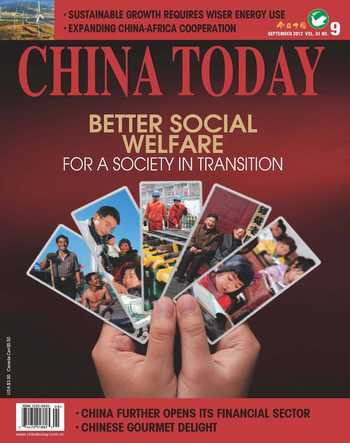LETTERS
The composition of Chinese families nowadays is fairly uniform – four grandparents, two parents, and one child. This inverse pyramid is arguably unsustainable in the long run due to an aging population. Not only does this structure mean the percentage of the population of working age will decrease, but it also indicates children may be left with heavy burdens to care for aging family members. International experience suggests that the generation of better-educated youth now growing up in China will prefer smaller families. The key to solving the problems is productivity. China is investing heavily in its human capital by boosting higher education attendance and standards, and improving compulsory schooling. The better educated are more likely to get married later and have fewer children. Also, the
soaring costs of raising a child in the country, plus greater emphasis on career success, have prompted some young couples to choose the DINK – Double Income, No Kids – lifestyle. The result is fewer babies being born in the country.
Yu Jun
Jilin Province, China
Cities the world over are growing in an explosive manner, unprecedented in both speed and scale. Four million people from the countryside are pushed and pulled into cities every month. The process is adding approximately one billion people to what is described as the global “Consuming Class,” and marking a steady increase in the purchase of goods and services. But this worldwide rural to urban migration will also produce as many as one billion new slum dwellers – those who cannot nor will ever manage to enter the Consuming Class. The resulting challenges to cities are unprecedented. For example, this urban growth will require a 40 percent increase over current levels of water consumption. And rising temperatures from global warming, which will be exasperated by the new Consuming Class, will further intensify water shortages. Consumerism and conspicuous consumption are the driving force in the emergence of the Anthropocene, a term coined to describe the current era of human domination over every species and ecosystem. The new Consuming Class marks a decreasing capacity to meet the needs of the globally disadvantaged. At present, the rapid rise in global commodity prices alone is certain to dramatically increase inequality and poverty. Even improved city planning – a foreign concept to most burgeoning urban sprawls – is not enough to tackle these challenges.
Barry Weisberg The USA
Having read the group of articles relating to Guizhous development, Im not sure what to feel. I have been to the province three times. At present, developments there are springing up like wild mushrooms, not only in the capital Guiyang, but also in a number ofother cities in the province. New highways, sparkling shopping centers and dizzying high-rises are becoming standard features of the provincial landscape. But for me, Guizhou is not defined by its development. When I write the word Guizhou I think of its natural scenery, which is simply stunning; its abundant sites of historical interest, and its intoxicating mix of ethnic cultures. I earnestly hope that the provinces precious cultural and natural treasures are maintained in its drive toward economic and social development. Boosting the local tourism industry is probably an effective way to protect ethnic cultures, for example, while promoting the local economy.
Zhang Hong Tianjin, China
Why have shengnü, meaning single women beyond the average marrying age, become a topic of conversation in China and why does this group continue to grow? I would posit the answer is that todays women live quite well alone and dont see the point in marrying for the sake of marriage itself. Chinas one-child policy has, in a sense, resulted in a gender imbalance in which there is an “oversupply” of men. Knowledge of this situation has added to the pressure women receive from all sides to get married young and settle down. But it seems to me that for most Chinese women, the mere fact that a man is available doesnt necessarily mean hes “the one.” Most Chinese women I know believe a successful marriage is between people of the same socioeconomic and educational standing. They will often wait to find someone with whom they have something in common and with whom they share a similar – or better – educational or socioeconomic background. Such men are few and far between.
Li Cheng Shanghai, China

